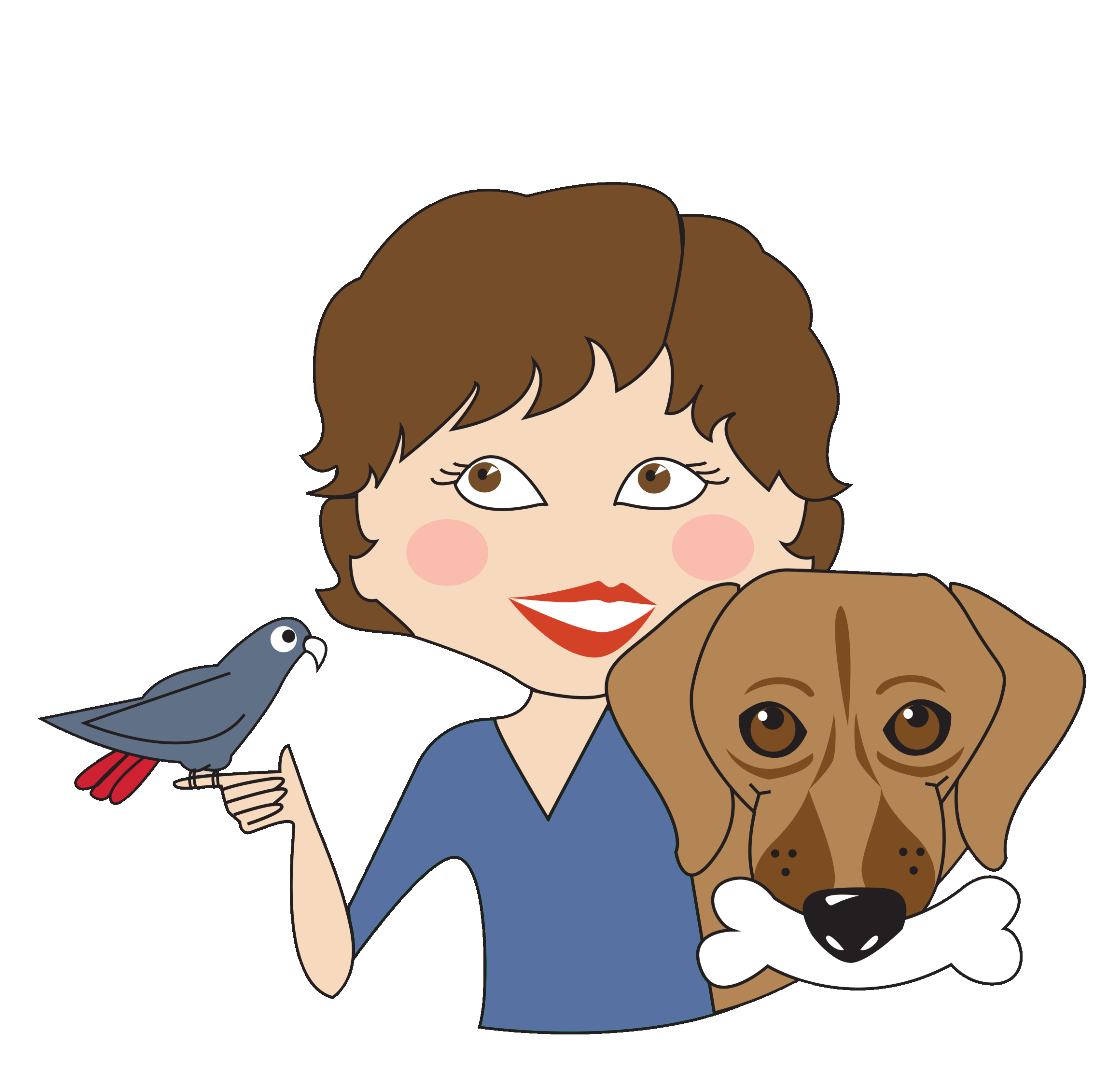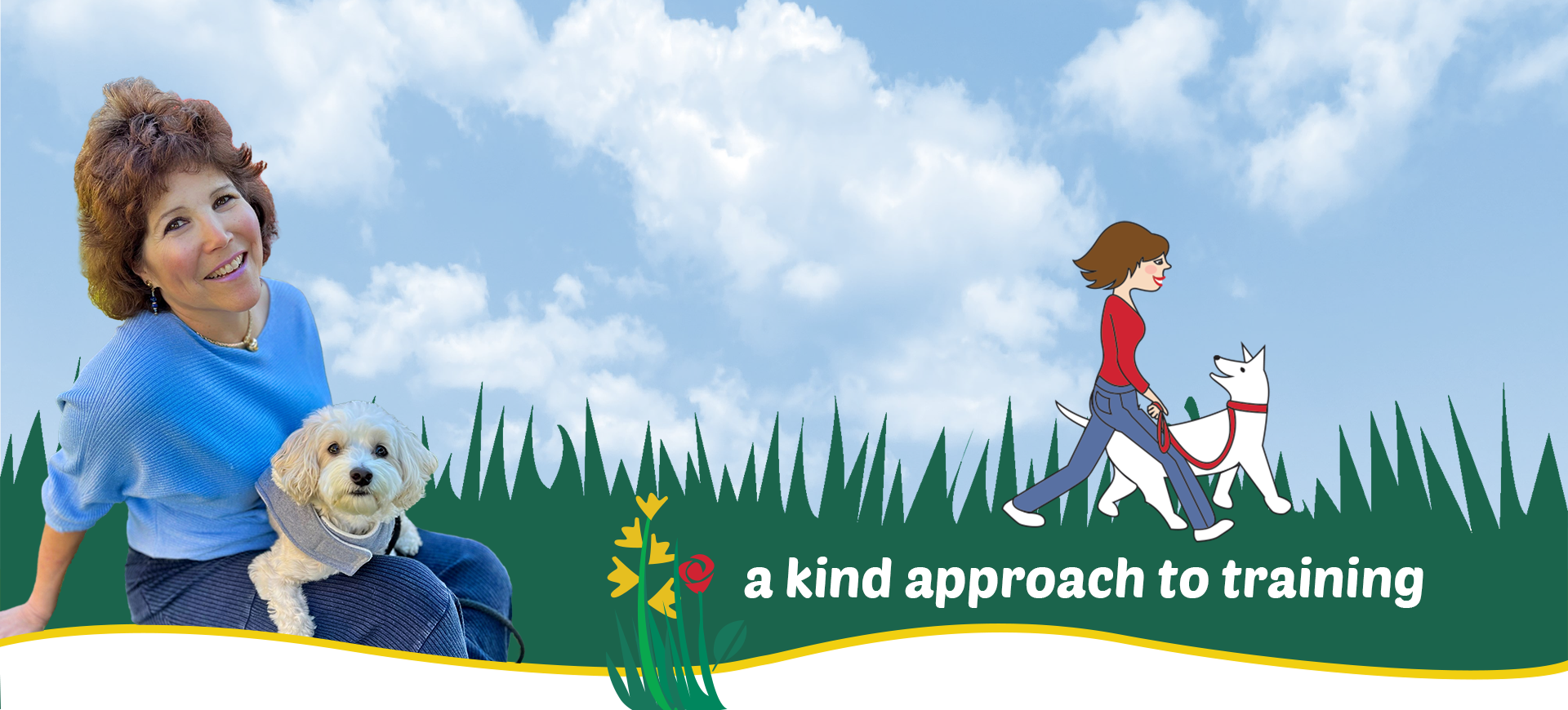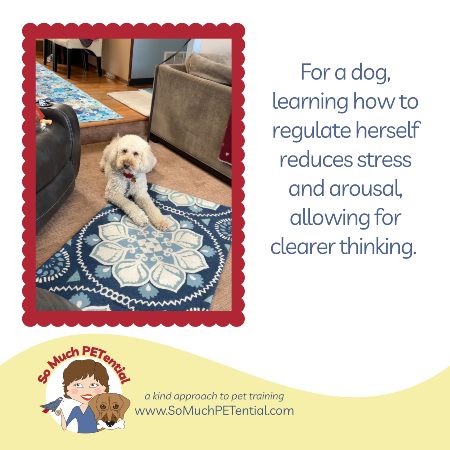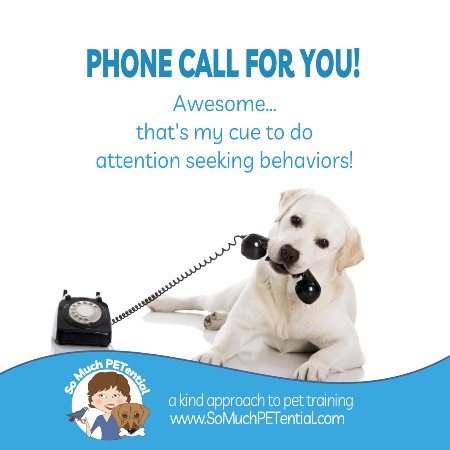The other night, I met a lot of new faces at a dog event. I knew I would be making introductions so I brought my a baggie of my homemade dog treats, the ones I use in training that my clients and our Sam typically get a response of quick attention. But, at that outdoor event where there were dozens of dogs and probably several hundred people, some pets took my gift readily; others ignored the treats and focused on the environment instead.
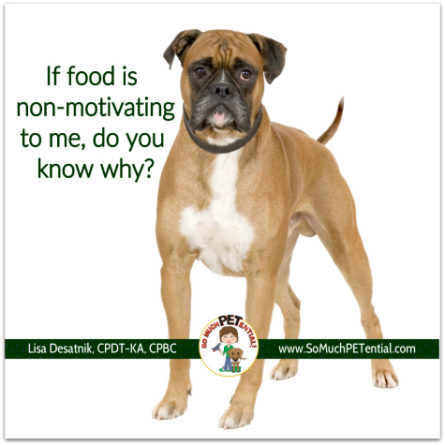 It got me thinking about food and dogs. It seems I either hear a lot about dogs who live to eat and will do anything for a piece of – well, anything; or I hear about dogs who are not motivated by food.
It got me thinking about food and dogs. It seems I either hear a lot about dogs who live to eat and will do anything for a piece of – well, anything; or I hear about dogs who are not motivated by food.
Hmm. Let’s really give thought to that second scenario. How could it be that a healthy dog is not motivated by food? After all, food is a necessity to survive. In fact, scientifically speaking, the category of ‘food’ is considered a primary reinforcer (A primary reinforcer, sometimes called an unconditioned reinforcer, is a stimulus that does not require pairing to function as a reinforcer and most likely has obtained this function through the evolution and its role in species’ survival. Skinner, B.F. (1974). About Behaviorism)
So, what then could cause a dog to turn its nose at food? There are a number of reasons. I have some of them below.
- There is something medically wrong.
Possibly it could be a sign of an underlying medical issue, including that your dog has a sensitivity to something in what you are feeding it. If your dog normally eats what you are giving it, and suddenly refuses it in the same situation, it is time to consult your veterinarian.
- Your dog is scared or over aroused.
In the case of this dog event, in addition to those dogs turning their heads away from my treats, some were hypervigilant, excessively panting, or showing other body language that told me they were anxious, alert, and stressed. A medically healthy dog’s willingness and interest in food tells us a lot about its emotional state. That turning away from treats (and other body language) is a symptom that the dog is not feeling safe or that the dog is in an extreme state of ‘eustress’, which is stress caused by positive excitement that still manifests as arousal. An example of this is the dog that is pulling at the end of its leash to get to pool of water, completely ignoring its handler. By putting their dog in an environment where their dog is reacting this way, the handler is doing a great job of teaching his/her dog the value of competing reinforcers from the environment (in other words, ignoring the handler on the other end of the leash).
- There are too many competing reinforcers.
This really speaks to my point above. If there is a strong, established history with competing reinforcers from the environment, which are more valuable to the dog than paying attention to you, it will be very difficult if not impossible for the skill of focusing on you to compete against what is happening in the environment. The foundational time you spend with lots and lots of positive practice teaching your dog how you want it to behave in different situations is extremely important (if you want to have a dog that has self control in a place with a great deal of distractions).
- History has taught your dog that food is a trap.
It is very, very important to remember that animals learn by consequences of their behaviors. If, in the past you have used food to lure your dog into doing something aversive (such as to come, when coming will result in something negative occurring; to get close to people it is afraid of; or to go into a crate where it will be locked up for the day); experience will have taught your dog that the presence of food comes before something negative. (Please read my article on classical conditioning.) Always keep in mind that it is what occurs AFTER something, that affects the emotional response of what occurs BEFORE (in classical conditioning); and also, through operant learning, animals learn whether or not a behavior is worth repeating or not. If a behavior serves to get the animal something of value (from the animal’s perspective), then that behavior will be repeated and even strengthened.
- You have taught your dog to ‘show me the money’.
It is so easy to inadvertently teach animals behaviors without realizing it. We can actually ‘teach’ stubbornness. How? Well, if you give your dog a piece of kibble and it refuses; and then you give it something better. You have just reinforced your dog’s decision to refuse kibble with the ‘something better.’
- You have been free feeding your dog.
Putting food in your dog’s bowl and leaving it there all day is a great way to devalue that food. You can read more about my thoughts on free feeding in this post.
There you have it. My top six reasons why your dog may NOT be motivated from food, and what you can do about it.
